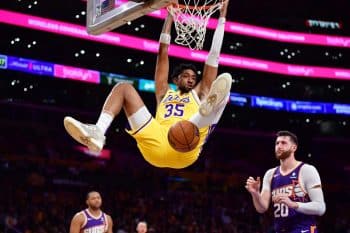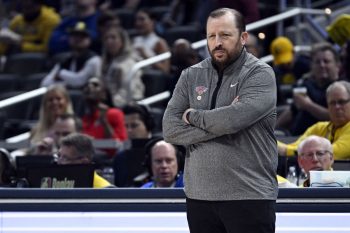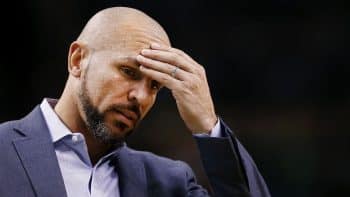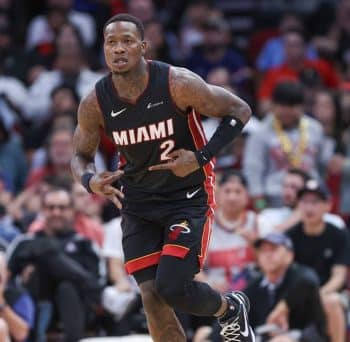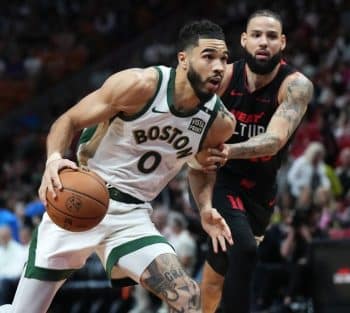NBA
NBA Daily: The Mavericks’ Unsung Heroes

In the blink of an eye, the Dallas Mavericks became playoff contenders.
Given the moving parts of the already difficult-to-navigate Western Conference, it seemed like a tall order to take a 24-win team and elevate them within striking range of the top eight. But then they acquired wunderkind Luka Dončić on draft night, signed DeAndre Jordan and dragged back Dirk Nowitzki for another rodeo. Of course, having postseason aspirations are certainly different than actually achieving those lofty goals, but the Mavericks — now in the midst of their longest playoff drought since 1999-00 — have plenty of reasons to be optimistic.
Dennis Smith Jr. is still leaping out of the building, Dončić looks ready-made to contribute and Harris Barnes — the team’s most expensive asset — didn’t make his season debut until last night. Still, the Mavericks’ record stands at a respectable 2-3: Without Barnes, without Nowitzki and with wins against some mid-level league talents. Yes, the headlines belong to the moneymakers, the former All-Stars and presumed future ones. And yet, part of the reason the Mavericks currently figure in the postseason conversation at all, and will continue to do so throughout the year, is in big part thanks to a cast of unsung heroes, both young and old.
This discussion must begin with Wes Matthews, an elite sharpshooter that’s taken control over the offense with Barnes and Nowitzki on the shelf. Through five games, Matthews is hoisting up a ridiculous 10.2 three-pointers per contest and knocking down 3.6 of them, tied for the eighth-best mark across the league. Ahead of him, naturally, are just the annually great: Stephen Curry (6.5), Kemba Walker (4.8), Khris Middleton (4.4), J.J. Redick (4), James Harden (3.8), Joe Ingles (3.8) and the surprising Blake Griffin (3.8). If the Mavericks can get a full season of volume shooting like this from deep out of Matthews, they’ll be in a great position come springtime. Mathews is on pace to set a career-high in points, perhaps unsustainable given the injuries so far, but nevertheless: He’s healthy and on a tear.
Although hovering a bit below his career average in three-point percentage (38.3), Matthews has been Dallas’ leader from beyond the arc in every season since he arrived in 2015 — that assuredly will not change anytime soon, either.
On tap next is the NBA’s twelfth-best assister — is it Smith Jr.? Maybe the savvy, instinctual Dončić? No, that honor belongs to J.J. Barea, the Mavericks’ long-time rotational mainstay. Even at the age of 34, Barea continues to terrorize second units with his controlled, but quick, playmaking abilities. The only players ahead of Barea (7.4) in the passing game at this point are all former All-Stars or highly-rated youngsters — Rajon Rondo, Kyle Lowry and Ben Simmons, to name a few — and this is in just 19 minutes off the bench, mind you. Simmons, still on a rookie deal, nearly doubles Barea’s current expiring contract ($3.7 million) and the rest of those names obviously dwarf the Puerto Rican’s paycheck as well.
With just four total turnovers on the season, Barea continues to grease the wheels with their regular ball-handlers indisposed at times. Barea tallied a career-high in both points (11.6) and assists (6.3) last season and it looks like he’s picked up right where he left off in April.
But Matthews and Barea aren’t the only underrated Mavericks members to post up on the early season leaderboards — that honor also belongs to Dwight Powell. In 2016, Dallas made the bold decision to re-sign Powell to the tune of four years and $37 million. For a player that had never averaged more than six points per game at that time, it was a head-scratcher by all accounts. Since then, the 27-year-old has improved in each successive season, topping out with a career-best 8.5 points and 5.6 rebounds over 21.2 minutes per game and 25 starts in 2017-18.
Despite his stature as a nearly-seven-foot behemoth, Powell has never been a particularly strong rebounder. But what he’s lacked in that department — and playing alongside Jordan will ease some of those concerns, surely — Powell makes up with his killer efficiencies. At 11.8 points in 15.6 minutes per game, not only does Powell take advantage of his modest playing time, but he’s stayed sizzling since the opening tip this month. In fact, his 77.8 percent rate ranks toward the peak of the entire NBA. If you dare to eliminate his one paltry attempt from deep every contest, which admittedly has never been his strong suit, Powell is sitting at 90.9 percent from two-point range as of now.
Whew — that’s pretty good, right?
Lastly, there’s Dorian Finney-Smith, the Mavericks’ defensive-minded small forward. After missing more than half of the 2017-18 season due to left knee quadriceps tendinitis, Finney-Smith made the most of his opportunity during Barnes’ early absence. Finney-Smith’s 32.3 minutes per game clocked in at third-most on the team before Friday. His ability to play strong, two-way basketball has made him a favorite of head coach Rick Carlisle. With so much offensive firepower already on the roster, Finney-Smith will never need to carry the load, leaving him to make disruptive defensive efforts and contribute within his role.
His improved preseason numbers — 8.1 points, 4.5 rebounds, 1.5 assists and a steal per game on 41.7 percent from three — have carried over in a positive way for Dallas, more or less thriving in the biggest role he’s ever had professionally. With Barnes back in the mix, Finney-Smith will likely cool off — but he’ll still feature as a key bench cog with the aforementioned Barea and Powell, plus Maxi Kleber, rookie Jalen Brunson and Nowitzki, as the latter transitions to the twilight of his career.
Ultimately, much has been made of Dallas’ weak 5-18 record in games decided by five points or less in 2017-18 and they went to great lengths to address those issues during the offseason. Adding Dončić and Jordan alone should tip those scales back toward normalcy, but there’s plenty of love to go around within this healthy, flexible rotation. The budding potential of their starters will have the Mavericks eying the postseason — but if the franchise wants to actually get there, they’ll need the efforts of their unsung heroes to continue long into the winter months.
